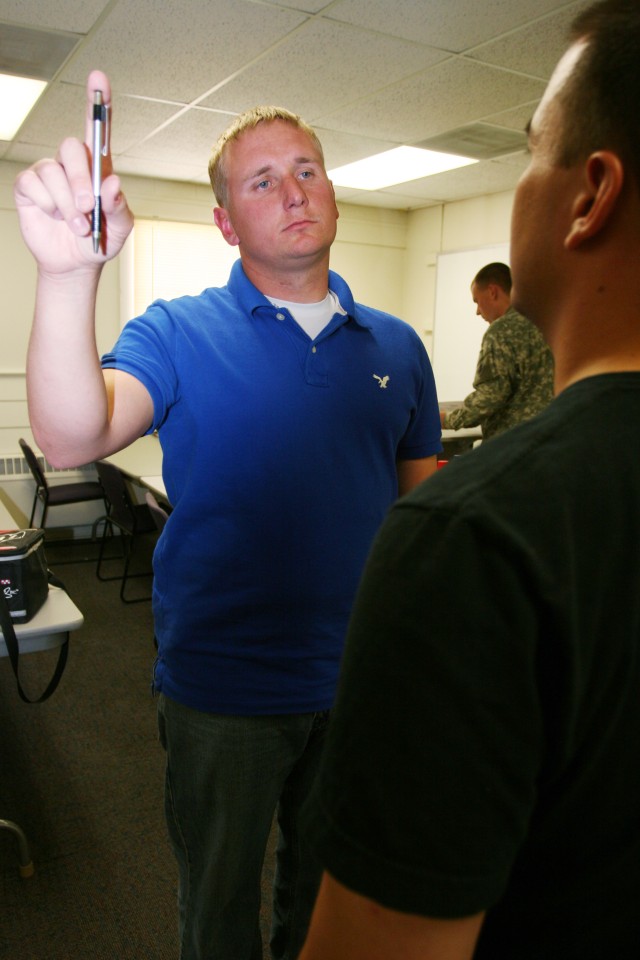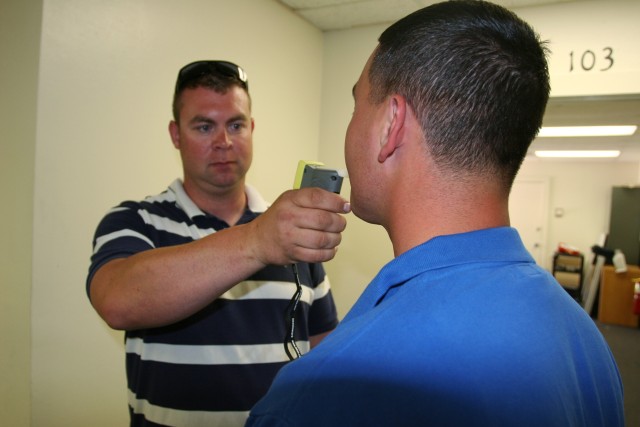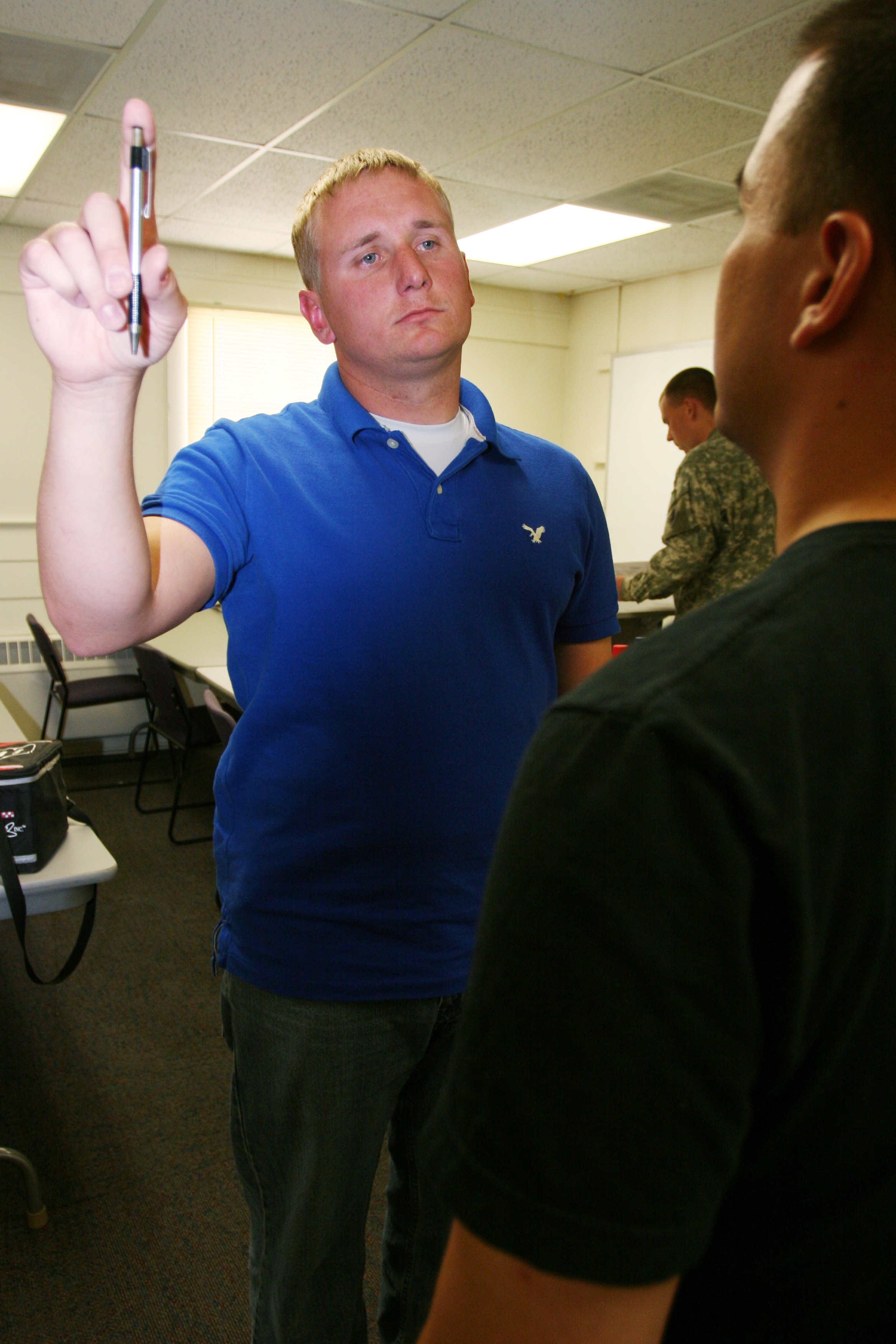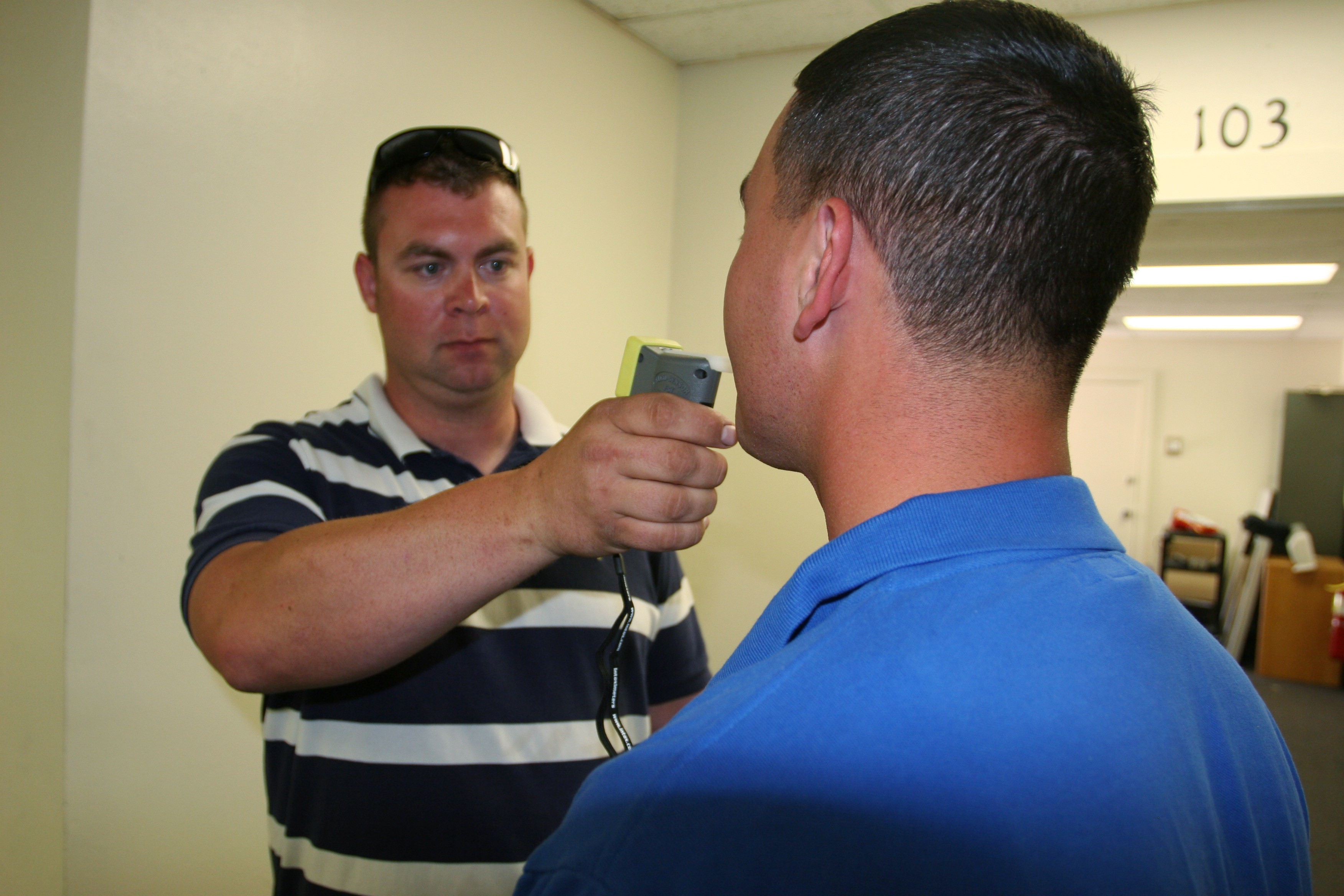FORT HUACHUCA, Ariz. -- On May 5-7, military, Department of the Army civilian and Arizona police officers came together to partake in a standardized field sobriety class.
The course, which was offered to 17 officers, is designed to help them, whether it be military or civilian law enforcement, identify, apprehend and prosecute the impaired driver, ultimately reducing the number of fatal and serious collisions from alcohol, explained Rich Gear, course instructor with the Arizona Department of Public Safety.
During the first two days students were taught how to implement three battery tests: horizontal gaze nystsgmus, which involves the involuntary jerking of the eye; the walk and turn; and the one leg stand.
"Alcohol and other drugs will cause the officer to see horizontal gaze nystsgmus when a subject is focusing on a stimulus that's moved from side-to-side," he explained, noting the horizontal gaze is the most accurate of the three tests that they teach, because it doesn't depend on tolerance.
"The other two tests, even though they are very accurate, if someone has a high tolerance to alcohol or some drugs, they may not perform as poorly as someone who has less of a tolerance," he added.
In order to obtain certification, officers must perform a minimum of 35 "gazes," meaning they must test 35 different subjects. They are given a year from the initial training date to obtain certification, otherwise they must attend the course again.
During the third day the students put the skills learned that week to the test when they participated in a "wet lab."
The wet lab consisted of about 20 participants, while under strict supervision, consumed various amounts of alcohol in a 2-hour period. After the two hours, the officers performed horizontal gaze nystsgmus tests on the intoxicated subjects.
Bob Caswell, training officer in the Directorate of Emergency Services, explained one of Fort Huachuca's reasons for hosting the training is to stay current on MP's and DCAP's education.
Although Fort Huachuca follows federal law, MPs and DCAPs incorporate the Assimilative Crimes Act, 18 U.S.C. A,AS 13, which makes state law applicable since federal law doesn't cover driving under the influence.
Also, another motive for hosting the training is to network with other local and state law enforcement, Caswell noted.
"Whenever we do anything like this we put it out to all the other departments; we're helping them out and they help us out," he said.
He added that he wants to ensure they follow Arizona's state law because if they have to go to court and haven't followed Arizona's certifications then the case will be thrown out. They use logs to keep track of how many gazes and officer has performed, which will accompany them to their next duty station and helps them keep track of their certification.
While the students executed their gazes newly-trained instructors provided instruction and direction to the students.
The instructors, which included two DCAP, one MP and two Wilcox Police Department officers, attended an instructor certification course at Fort Huachuca May 3-4.
These officers will now be able to host their own standardized field sobriety class training.
"We're trying to self contain so [we] don't have to request for instructors to travel [here]," he explained, noting in the past they had to ask for instructors, such as Gear, to travel from Phoenix to train Soldiers and civilians.
The instructor course included reviewing the curriculum for the standardized field sobriety testing class, and a refresher for instructing methods previously learned in the general instructor's course. The future instructors also paired up and taught a block of instruction to already-certified instructors, who critiqued their teaching methods. Gear noted that to become certified as an instructor, the students were required to teach a 2-hour block during the standardized field sobriety school (which was the second half of the week) and also have to assist with the wet lab. Once they fulfilled those requirements they become certified instructors.
Although certification does not expire in Arizona, Gear noted this state is one of the hardest states to get certified in, and because of that, they don't accept a lot of other state's certifications.




Social Sharing